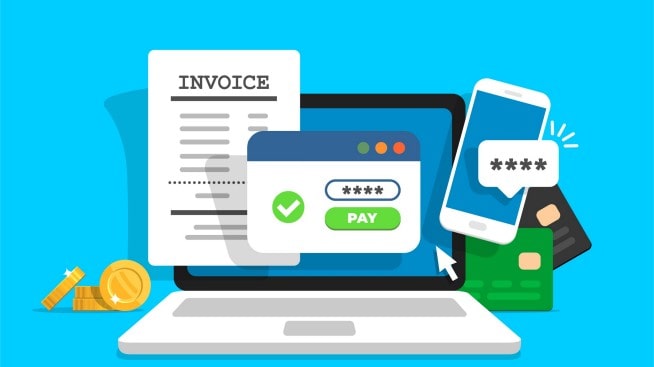What is a derogatory mark on your credit report?

Have you ever seen or heard of the phrase “derogatory mark” on a credit report? A derogatory mark might sound worrisome if you don’t know what it means or how it could affect you.
If you get a derogatory mark on your credit report, it means that there is an item on your account that is past due or at credit risk, which is the risk that a lender may lose the money they’ve lent you due to missed required payments. A mark appears on the credit score because it’s reported from your lender to the credit agency, not the service providing your credit score.
These marks are different than alerts you may receive from your issuer, which could be about a low credit balance or a fraud alert. Derogatory marks can significantly and negatively impact your credit score. They may appear on your report as one of the following:
- Late payments that are around 30 days or more past due
- Charge-offs
- Foreclosures
- Bankruptcy filings
- Repossessions
You might be wondering how long derogatory marks last and how they affect your credit score. In this article, you’ll learn more about what derogatory marks are, how to remove or dispute them and how to ensure that your credit score remains healthy.
Different types of derogatory marks
There are a few different types of derogatory marks you could receive on your credit report. Each of these can negatively affect your credit score and remain on your report for years, depending on which mark you receive.
Late payments
A late payment is generally a payment that’s been made 30 days or more after the due date. It can appear on your report as a derogatory mark and has the potential to lower your credit score by 100 points or more. Late payments stay on your report for seven years from the date of the late payment, which can hurt your chances of getting approvals for things like auto loans or mortgages.
Charge-offs
A charge-off happens when a payment has yet to be made on a debt for a certain period of time. Creditors can send your account to collections or mark the charge-off on your credit report. This is not a debt that’s been forgiven, but one that remains on your report and damages your credit score.
If you pay your charge-off in full, the report will show a paid charge-off. It will remain on your report but won’t have as much of an impact to your credit score as an unpaid charge-off. An unpaid charge-off will hurt your score and you may be contacted by a collections company. Whether paid or unpaid, charge-offs remain on your report for seven years.
Foreclosures
Foreclosures happen when you can’t keep up with your mortgage payments and must forfeit the right to the property. They can last seven years on your credit report from the date of the foreclosure filing and can lower your credit score by 100 points or more.
Bankruptcy filings
Filing for bankruptcy means that a court proceeding discharges your debt and sells your assets. This type of mark can cause your credit score to drop even more significantly than late payments or charge-offs, and can last longer on your report than the other marks (approximately 10 years as opposed to seven).
Repossessions
A repossession happens when your assets—such as a car—are taken as collateral due to missing payments. Repossessions can cause your score to drop anywhere from 50-150 points or more and remain on your report for seven years.
How to remove derogatory marks from your credit report
Now that you’ve learned what these marks are and how they can damage your credit score, you may be wondering how to get them removed from your credit report. Removing a mark you can help improve your credit score, in addition to monitoring your credit score with alerts to help avoid future errors.
Let’s say you receive a derogatory mark for a charge-off on your credit report. You may want this removed for several reasons, including the possibility there was an error on your report or that you want to try to protect your credit score. Depending on the situation, you can try a few strategies to dispute or request for a removal of the mark.
Submit your dispute to the credit bureau
If you receive a mark as a credit report error, one way to remove the mark from your credit report is to contact the credit bureau responsible for providing you with your credit report. This could either be Experian™, Equifax® or TransUnion® and may be all three.
You can submit your dispute by sending a letter describing your situation by mail. It would be helpful to include any supporting documents that can help prove this was an error in the report. You may also be able to submit this information online through the credit reporting company or begin by contacting them over the phone.
Dispute the mark with your credit card issuer
You can also submit disputes to your credit card issuer or bank. You can do this by contacting your credit card issuer either via mail or phone to address the error. Should there be a mistake in the report, your issuer should notify the credit bureaus so that your credit report reflects accurate information.
Write a letter to your creditor to request deletion
If the other methods do not work, you can write a letter of goodwill to your creditor that highlights the reasons why your payments were late. For example, you can express that you’ve been facing financial hardships, learned a lesson about managing your money and want to improve your credit score. Doing so could help you get a mark removed or a payment forgiven, which helps to protect your credit score.
However, be prepared that your request for removal may not be granted and that you’ll need to face these late payments head-on. In most cases, you will be expected to pay back the money in full with interest and marks are seldom removed.
Does removing a derogatory mark improve credit?
If you’re successful in getting your derogatory mark removed from your credit report, you may eventually see this reflected in your credit score. If you successfully dispute a late payment or charge-off, the removal of this dispute could result in an increase in your credit score by about 100 points, and continues to positively reflect when you make regular payments on time.
The derogatory mark itself does not immediately lower your credit score though. However, as discussed above, you could face serious consequences depending on the mark you receive. Missing several payments can affect your credit utilization ratio and your credit score, given that payment history accounts for 30-35% of your score.
How to avoid derogatory marks?
Derogatory marks on your credit report can hurt your credit score, which can make it difficult to apply for loans, new credit cards and more. To avoid these marks, be sure to practice good financial habits and make your payments on time. One way to ensure that you’re making payments on time is by setting up automatic payments for regular recuring bills such as rent, utilities or car payments. By budgeting and maintaining a healthy approach to your finances, you can avoid getting marks and protect your credit score.
Another way to help protect yourself from marks is by monitoring your payments, billing statements and credit reports. Having this information available can be useful for planning future payments and adjusting your spending to meet realistic financial goals. Using tools like Chase Credit Journey® can help you keep track of your credit score in order to maintain a positive credit history with credit monitoring services, free credit reports and more.
In conclusion
There are multiple reasons why you may have received a derogatory mark on your credit score. This could be because you’ve missed payments, filed for bankruptcy, haven’t paid your debt or even because of an error. Depending on the type of mark, you can file a dispute or request a removal.
By taking some essential, proactive steps, you can avoid receiving derogatory marks. Monitoring your credit, budgeting and making automatic payments are just a few of the ways you can protect yourself from receiving future marks.
You may also want to consider utilizing services such as credit monitoring to alert you of purchases or bills. Chase offers just-in-time-alerts and identity monitoring to help you monitor your credit score.



